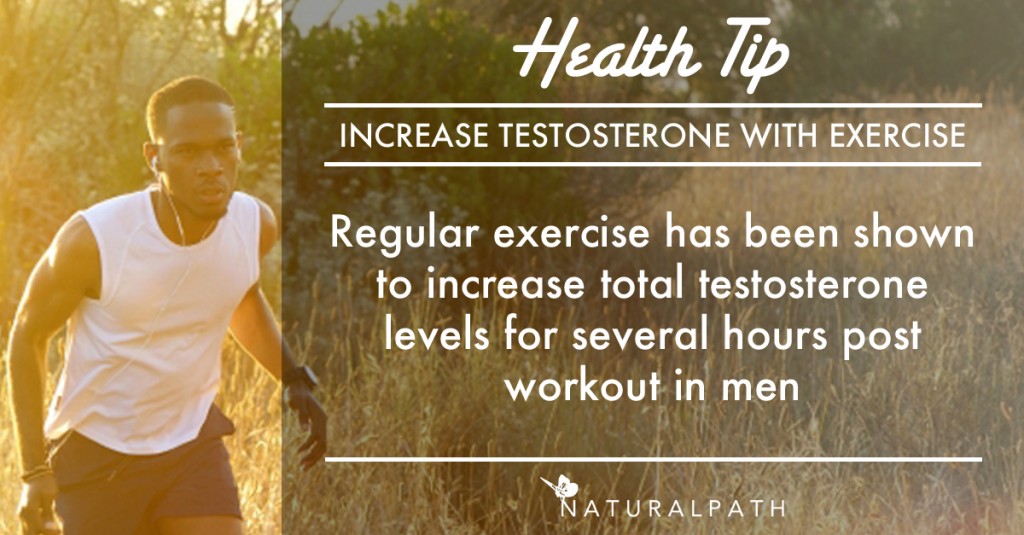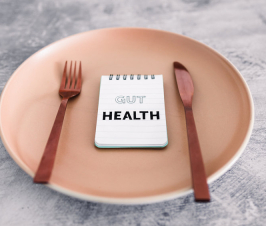Dr. Bianca Garilli, ND
@DoctorBianca
If there is a common theme that runs through the patients I see in my office, it’s the desire to be less fatigued and have more energy. Isn’t that what we all want? More vitality on a daily basis, more energy to enjoy the life we have created, enhanced motivation and focus on attaining our life goals? Of course, however, the answer to supporting a person’s increased energy goals will be different depending on why their energy is depleted as well as their current health status, past medical history and yes, their age and gender.
In general, many men after about the age of 45-50 begin to feel a decline in energy, experience a loss of muscle mass and sometimes a decline in libido. Moreover, many experience reduced ability to stay focused and to concentrate on tasks at hand while others may begin to notice minor slips of memory.
These are common symptoms often associated with an age-related decline in the important hormone, testosterone. Interestingly enough, a 2011 study noted that the symptoms often attributed to a naturally declining level of testosterone in the fifth and sixth decade of life may actually be due to a less than optimal health-promoting lifestyle versus a natural reduction in testosterone. This data, collected from the Healthy Man Study, postulates that low testosterone, instead of being the cause of “age-related” declines is instead caused by unhealthy lifestyle habits which subsequently lead to the lowering of testosterone levels. [i]
Although testosterone replacement therapy makes a substantial improvement in the physical, mental and emotional health for many men, lifestyle medicine changes cannot be overlooked. These lifestyle pieces are the foundation on which everything else in the human body functions. Without an optimal daily lifestyle, hormone replacement may help to “solve” the problem for a short period of time but will not be the long-term solution for which most men are looking. Below you will find four daily habits which should be added to every male’s life to support natural testosterone production or, if testosterone replacement is used, to create a healthful foundation on which these exogenous hormones can work optimally.
- Exercise:Regular exercise has been shown to increase total testosterone levels for several hours post workout in men. [ii] Strength training specifically has been shown to induce both growth hormone and testosterone release. This is seen in all males tested, regardless of age, although the younger participants (average 23 years old) had greater increases than those who were older (average 60’s in age). [iii] Testosterone levels can be positively influenced, at any age, through regular exercise, including strength training regimens.
- Modify stress response: In the human body there is something called the hormone cascade. This is the pathway that takes the building blocks for hormones and either directs them into the production of sex hormones such as testosterone OR, if the circumstances are stressful, can direct those same building blocks into a different pathway producing the stress hormone called cortisol. Long term stress responses without appropriate modification strategies can lead to an increase in cortisol production and a concurrent reduction in sex hormones such as testosterone. Practicing daily stress modification can create improved pathways leading to enhanced testosterone production naturally. Many people find exercise such as running or gentler movement such as yoga and Tai Chi to be excellent stress management tools. Others find that mindfulness meditation, visualization, prayer or simply being in a low tension environment will do wonders for mitigating the effects of everyday stress. Find a daily routine that brings you happiness and reduces your stress.
- Diet: Being overweight or obese, or having metabolic syndrome or diabetes all lead to an increase in adipose tissue or fat mass which actually functions similarly to an endocrine and hormone influencing organ. This fat tissue is particularly detrimental to the production of optimal levels of testosterone. To naturally support testosterone production from a dietary perspective, choose a naturally slimming anti-inflammatory/Mediterranean diet. Choose fish and lean meats and pasture raised eggs as sources of protein. Add complex carbohydrates including sweet potatoes, pumpkin and beets along with plenty of green leafy vegetables and a hearty amount of legumes to your routine diet. Use nuts, seeds and fruits to round out this nutritionally dense eating plan and don’t forget the importance of staying well hydrated. Eat well to stay well.
- Sleep: Adequate sleep is another cornerstone of healthy living. During sleep the body works on healing from the day’s events. This is also the time when the body produces the most growth hormone and studies show that adequate sleep supports a healthy production of testosterone in men. In fact, one recent publication showed that the closer to nine hours per night a man slept the better his levels of testosterone. [iv] Sleep is important for a myriad of reasons including the production of healthy levels of male hormones.
Overall, a healthy lifestyle will go a long way in supporting optimal testosterone production. The correct amount of sleep, a stress mitigating routine, daily exercise and a healthful, vibrant, nutrient dense anti-inflammatory diet are keys to naturally healthful levels of testosterone in men, regardless of their age.
Happy Movember – now go out and be good to yourself!
 Dr. Garilli is a former US Marine turned Naturopathic Doctor. She runs a private practice in Folsom, California where she specializes in treating and preventing chronic disease states through a personalized lifestyle approach including nutrition, exercise, botanical medicine, and homeopathy.
Dr. Garilli is a former US Marine turned Naturopathic Doctor. She runs a private practice in Folsom, California where she specializes in treating and preventing chronic disease states through a personalized lifestyle approach including nutrition, exercise, botanical medicine, and homeopathy.
In addition to private practice, she consults with nutritional supplement companies and integrative medical clinics on case studies, professional consultations and educational program development. Dr. Garilli is a member of the faculty at Hawthorn University and a founding board member for the CA Chapter of the Children’s Heart Foundation. Dr. Garilli lives in Northern California with her husband, children, and four backyard chickens.
References:
- The Endocrine Society. “Older age does not cause testosterone levels to decline in healthy men.” ScienceDaily. ScienceDaily, 7 June 2011. Sourced from: www.sciencedaily.com/releases/2011/06/110607121129.htm
- Sanavi S, Kohanpour MA. Effects of aerobic exercise intensity on serum cortisol and testosterone in trained young men. Saudi Journal of Sports Medicine. 2013;13(1) 48-50.
- Craig BW, Brown R, Everhart J. Effects of progressive resistance training on growth hormone and testosterone levels in young and elderly subjects. Mechanisms of Ageing and Development. 1989;49(2), 159-169.
- Auyeung TW, et al. Sleep duration and disturbances were associated with testosterone level muscle mass, and muscle strength – A cross sectional study in 1274 older men. J Am Med Dir Assoc. 2015 1;(7):630.e1-6.


















